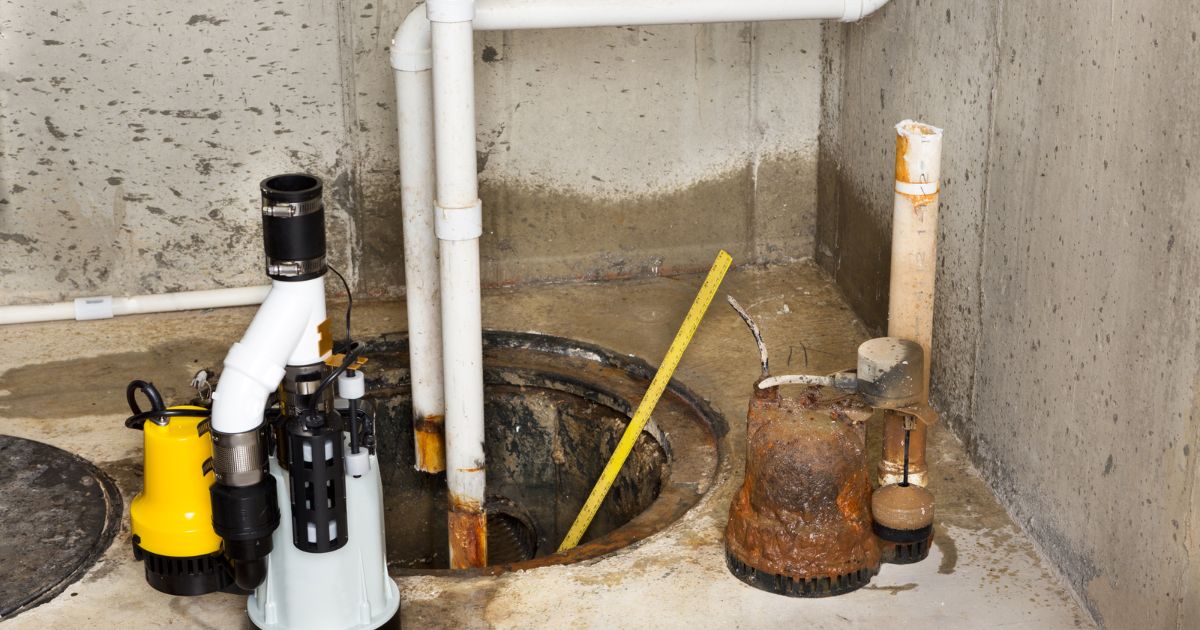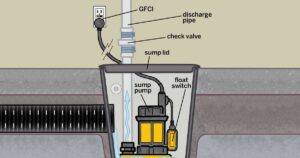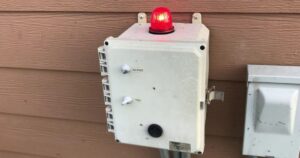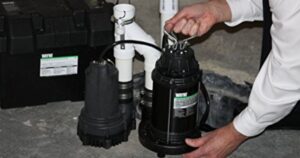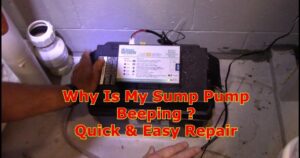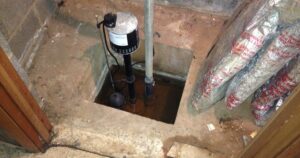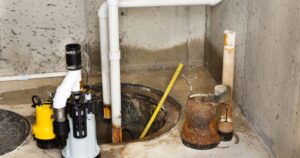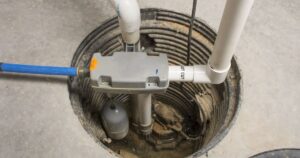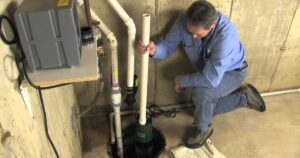Have you noticed a foul odor emanating from your sump pump? Don’t despair, as we have the solution to banish that unpleasant smell and restore a fresh environment. In this article, we will delve into the causes of sump pump odors and provide you with practical steps to eliminate them. Whether it’s dryness or stagnant water causing the stench, we will guide you through the process of fixing your sump pump and ensuring a pleasant atmosphere in your home. Get ready to bid farewell to that off-putting smell!
Key Takeaways
- Sump pumps remove excess water from basements or crawl spaces to prevent water damage, mold growth, and structural problems.
- Different smells from sump pumps can indicate issues such as mold or mildew growth, hydrogen sulfide gas buildup, or sewage backup.
- The causes of sump pump odors include stagnant water and debris buildup, lack of maintenance, bacteria and mold growth, and debris accumulation in the sump pit.
- To get rid of sump pump smell, it is important to clean the pump and pit, flush the system with vinegar and water, and consider using a sump pump deodorizer or odor-reducing tablet. Proper cleaning and maintenance techniques are crucial for eliminating the smell and addressing underlying causes.
What Does a Sump Pump Do
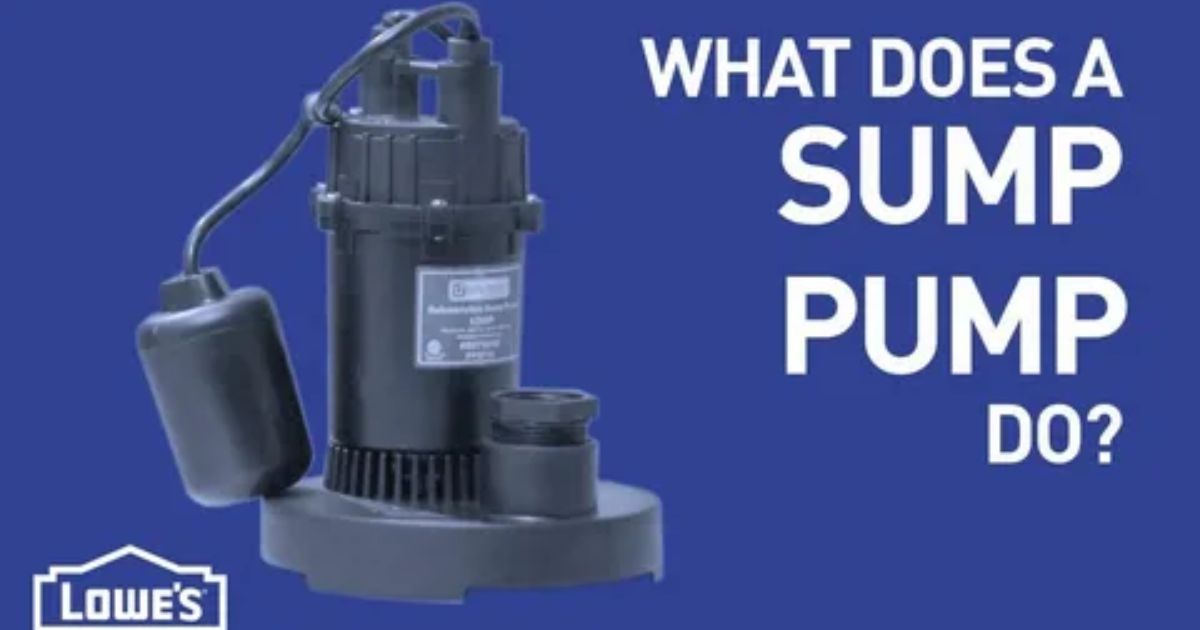
A sump pump is a mechanical device that removes excess water from the basement or crawl space of a building. It is an essential component in preventing water damage, mold growth, and structural problems caused by water accumulation.
The primary function of a sump pump is to collect water that accumulates in a sump pit, which is a specially constructed basin located in the lowest part of the basement or crawl space. When the water level in the sump pit rises above a certain threshold, the sump pump is activated and begins pumping the water out and away from the building through a discharge pipe.
This ensures that the basement or crawl space remains dry and free from water damage. Sump pumps are typically powered by electricity, but some models also have battery backup systems to ensure operation during power outages. Regular maintenance and testing are necessary to ensure the sump pump functions properly when needed.
What a Sump Pump Smells Like
When a sump pump develops a bad smell, it is often due to the accumulation of stagnant water and debris in the sump pit. The smell can be unpleasant and may indicate underlying issues that need to be addressed. Here are three common smells associated with a malfunctioning sump pump:
- Musty Odor: A musty smell is often an indication of mold or mildew growth in the sump pit. This can occur when water is not properly drained or if there is a lack of ventilation in the area.
- Rotten Egg Odor: A rotten egg smell is usually a sign of hydrogen sulfide gas buildup. This can occur when bacteria break down organic matter in the sump pit and produce the foul-smelling gas.
- Sewage Odor: If your sump pump smells like sewage, it may be due to a backup in the sewer line. This can occur if the sump pump is connected to the sewer system instead of a designated drainage area.
Identifying the specific smell can help you determine the cause and take appropriate measures to eliminate the odor and prevent further issues with your sump pump.
Causes of Sump Pump Odors
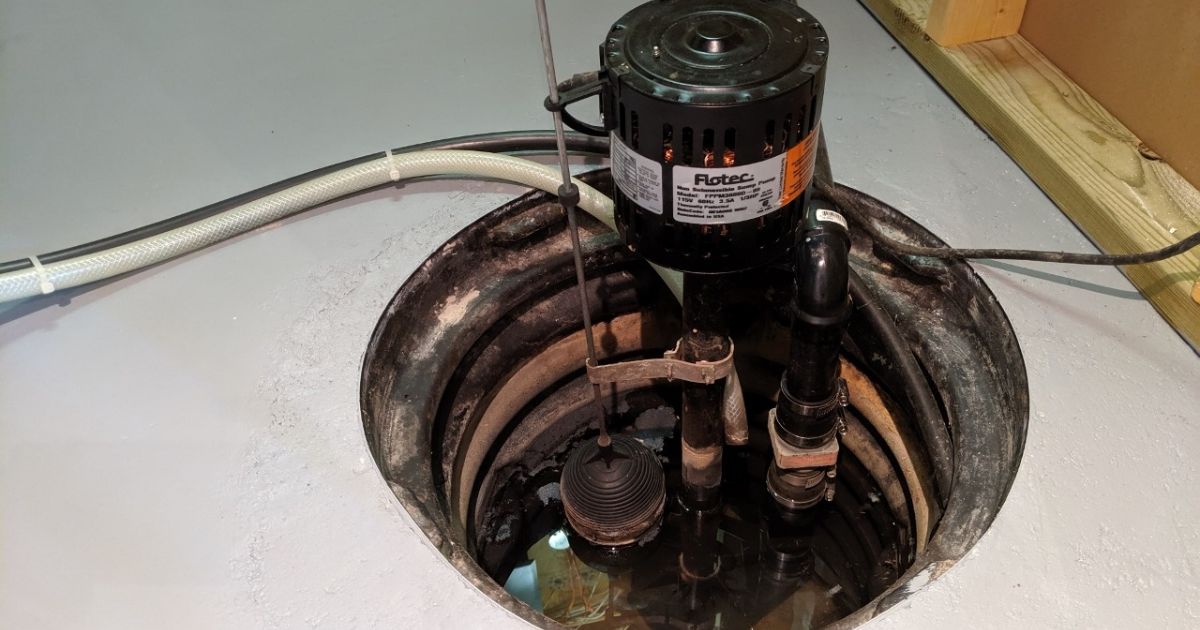
One possible cause of sump pump odors is the buildup of stagnant water and debris in the sump pit. When the sump pump is not regularly maintained or if it is overwhelmed by excess water, the water can become stagnant and create an environment for the growth of bacteria and mold. These microorganisms release unpleasant odors that can permeate the air around the sump pump.
Debris such as leaves, dirt, and other organic matter can accumulate in the sump pit, further contributing to the foul smell. To effectively remove the sump pump smell, it is crucial to address the underlying causes of the odor, including cleaning and disinfecting the sump pit, as well as implementing preventive measures to prevent future odor issues.
How to Remove Sump Pump Smell
To effectively eliminate the unpleasant odor emanating from your sump pump, it is essential to employ proper cleaning and maintenance techniques. Here are three practical steps you can take to remove the smell:
- Clean the pump and pit: Start by disconnecting the power to the pump and removing any debris or buildup from the pit. Use a mixture of water and mild detergent to clean the pump and pit thoroughly.
- Flush the system with vinegar: Fill a bucket with a mixture of equal parts vinegar and water. Pour this solution into the sump pit and let it sit for a few hours. Then, flush the system by running clean water through the pump.
- Install a deodorizing product: Consider using a sump pump deodorizer or an odor-reducing tablet specifically designed for sump pumps. These products can help neutralize and eliminate any lingering smells.
Common Problems That Can Make Your Sump Pump Smell Off-Putting
Several common problems can contribute to the off-putting smell emanating from your sump pump. One potential issue is a clogged discharge pipe. When the discharge pipe becomes blocked with debris or sludge, it can cause the water to stagnate and produce a foul odor.
Another common problem is a malfunctioning check valve. The check valve is responsible for preventing water from flowing back into the sump pit after it has been pumped out. If the check valve fails, water can flow back, leading to stagnant water and a strong smell.
A damaged or worn-out sump pump can also be the cause of the unpleasant odor. These problems can be fixed by addressing the specific issue and ensuring proper maintenance of your sump pump.
How to Fix a Bad Sump Pump Smell
What steps can be taken to address the unpleasant odor coming from a sump pump?
- Clean the sump pump pit: Start by removing any debris or sediment that may have accumulated in the sump pump pit. Use a wet-dry vacuum or a bucket to remove the water from the pit before cleaning it thoroughly with a mixture of water and bleach. Rinse the pit with clean water to remove any remaining bleach residue.
- Check the discharge pipe: Inspect the discharge pipe for any clogs or obstructions that may be causing the bad smell. Clear any blockages using a plumber’s snake or a high-pressure water jet.
- Install a sump pump odor prevention system: Consider installing an odor prevention system, such as a vent pipe or a carbon filter, to eliminate the bad smell. These systems help to trap and neutralize odors before they are released into the air.
Dryness Causes Sump Pump Smells
Dryness can be a major factor contributing to unpleasant smells emanating from a sump pump. When a sump pump remains unused for extended periods, the lack of moisture can cause the water in the trap to evaporate. As a result, the trap becomes dry, allowing sewer gases to escape into the surrounding area. These gases often carry a foul odor, which can permeate the space where the sump pump is located. To address this issue, it is essential to ensure that the trap remains filled with water.
Regularly pouring water into the sump pump basin can help maintain the necessary moisture level in the trap, preventing the escape of unpleasant odors. By addressing the dryness issue, you can effectively eliminate one potential cause of sump pump smells and move on to addressing other possible factors, such as stagnant water.
Stagnant Water Leads to Sump Pump Smells
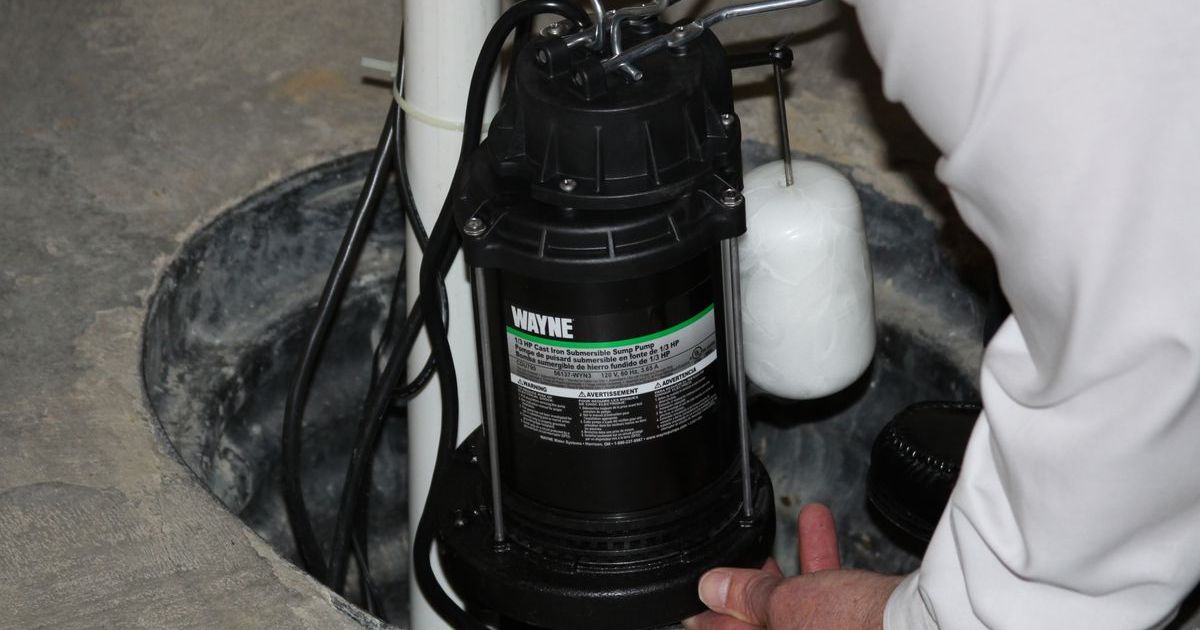
Stagnant water in the sump pump basin is a common cause of unpleasant smells. When water remains stagnant for extended periods, it becomes a breeding ground for bacteria and mold, leading to foul odors. To address this issue effectively, consider the following:
- Regular Maintenance: Regularly inspect and clean the sump pump basin to prevent the accumulation of stagnant water and debris.
- Adequate Drainage: Ensure that the sump pump is properly installed and functioning correctly to prevent water from pooling in the basin.
- Proper Ventilation: Install a vent pipe or a deodorizing system to improve air circulation and reduce the chances of odor buildup.
Frequently Asked Questions
How Often Should a Sump Pump Be Cleaned to Prevent Bad Smells?
To prevent bad smells, regular cleaning of a sump pump is essential. The frequency of cleaning depends on factors such as usage, water quality, and environmental conditions. Consult the manufacturer’s guidelines or a professional for specific recommendations.
Can Using Certain Cleaning Products Affect the Smell of a Sump Pump?
Using certain cleaning products can indeed affect the smell of a sump pump. It is important to choose products specifically designed for sump pumps, as using the wrong ones may worsen the odor or even damage the pump.
Are There Any Natural Remedies to Eliminate Sump Pump Odors?
There are several natural remedies available to eliminate sump pump odors. These remedies, which include using baking soda, vinegar, or hydrogen peroxide, can help neutralize the smells and restore a fresh scent to your sump pump system.
Can a Sump Pump Smell Indicate a Larger Underlying Issue With the System?
A foul odor emanating from a sump pump may indicate a potential underlying issue within the system. It is crucial to investigate further to identify and address any potential problems to ensure proper functioning and prevent further complications.
Is It Necessary to Hire a Professional to Fix a Bad Sump Pump Smell, or Can It Be Done as a DIY Project?
It is recommended to hire a professional to fix a bad sump pump smell due to the potential underlying issues that may require expertise. While DIY solutions may temporarily mask the smell, a professional can identify and address the root cause, ensuring long-term resolution.
Conclusion
In conclusion, addressing the bad smell from a sump pump requires understanding the causes and implementing appropriate solutions. Factors such as stagnant water, dryness, and common problems can contribute to the unpleasant odor. By ensuring proper maintenance, cleaning, and addressing any underlying issues, homeowners can effectively eliminate sump pump smells and maintain a functional and odor-free system. Learn more “How many watts is a sump pump?“
